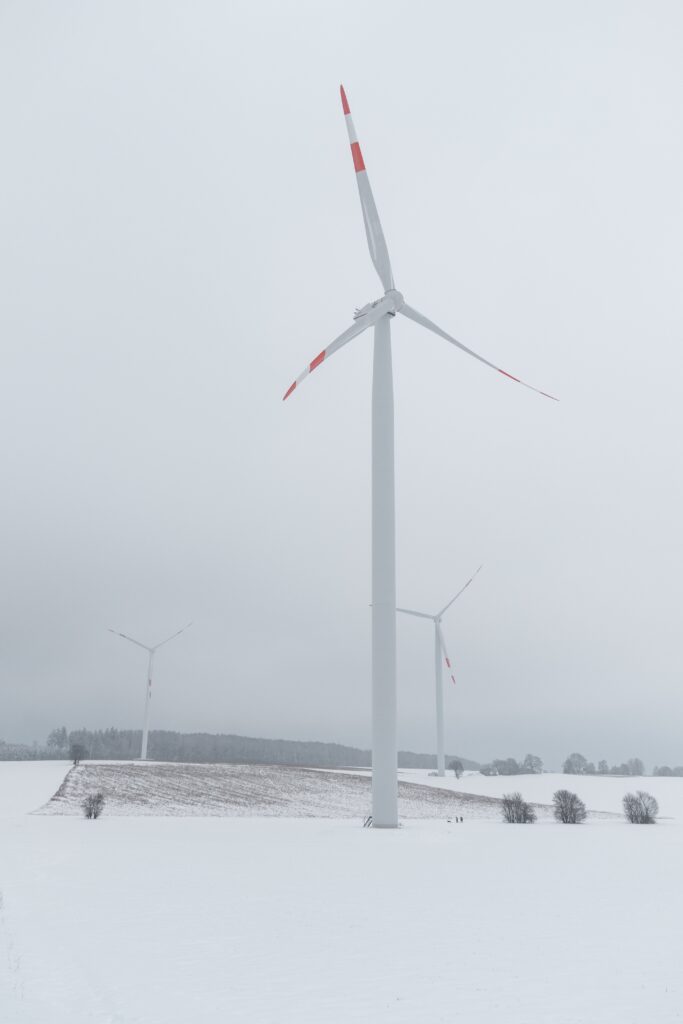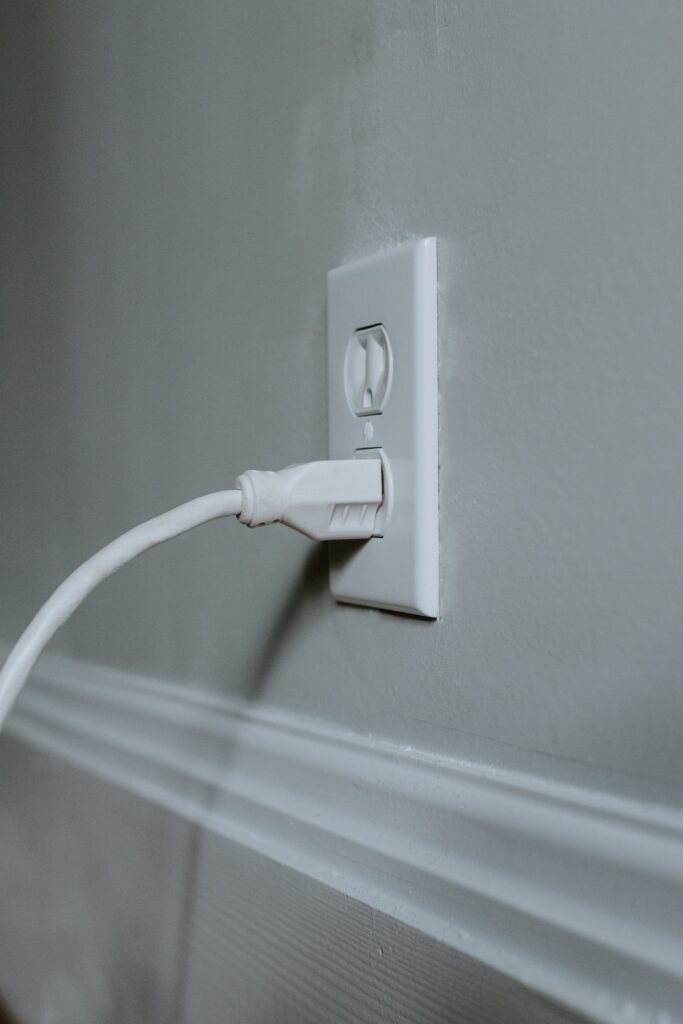Imagine a world where you can run your refrigerator solely on the power of the sun. It may seem like a far-fetched idea, but with advances in solar technology, it might just be possible. In this article, we will explore the question that has been on the minds of eco-conscious homeowners and solar enthusiasts alike: can a 100 watt solar panel run a refrigerator? Get ready to discover the potential of harnessing solar energy to power one of the most essential appliances in your home.
Understanding Electrical Power Basics
Definition of electrical power
Electrical power is the rate at which electrical energy is transferred or converted into other forms of energy. It is a fundamental concept in the field of electrical engineering and physics. Power is calculated by dividing the amount of work done or the amount of energy transferred by the time taken to do that work or transfer that energy. It is measured in units called watts (W).
Units of electrical power
The SI unit for power is the watt, denoted by the symbol “W”. One watt is equal to one joule per second. However, in practical applications, larger units such as kilowatts (kW) and megawatts (MW) are often used. One kilowatt is equal to 1000 watts, and one megawatt is equal to 1,000,000 watts.
Understanding watts, kilowatts, and megawatts
Watts, kilowatts, and megawatts are used to express the power rating of electrical devices or systems. A watt is a relatively small unit of power, commonly used for household appliances and small electronics. Kilowatts are used for larger devices and systems, such as air conditioners, heaters, and industrial machinery. Megawatts are typically used to describe the power output of large-scale power plants and utilities.
Introduction to Solar Panels
How solar panels work
Solar panels, also known as photovoltaic (PV) panels, are devices that convert sunlight into electrical energy. They consist of multiple solar cells made of semiconductor materials, such as silicon. When sunlight strikes a solar cell, it excites the electrons in the cell, creating a flow of electricity. This direct current (DC) electricity is then converted into alternating current (AC) using an inverter, making it suitable for use in homes and businesses.
Types of solar panels
There are several types of solar panels available, including monocrystalline, polycrystalline, and thin-film panels. Monocrystalline panels are made from a single crystal structure and are known for their high efficiency. Polycrystalline panels are made from multiple crystal structures, and although they are slightly less efficient than monocrystalline panels, they are often more cost-effective. Thin-film panels are made by depositing a thin layer of semiconductor material onto a substrate and are known for their flexibility and lightweight nature.
Categorization of solar panels based on power output
Solar panels are typically categorized based on their power output. This is measured in watts peak (Wp) or kilowatts peak (kWp). The peak power rating represents the maximum electrical power that the solar panel can generate under ideal conditions. It is important to consider the power output of a solar panel when determining its suitability for specific applications, such as running a refrigerator.

Understanding 100 Watt Solar Panel
Features of a 100 Watt solar panel
A 100 Watt solar panel is designed to produce a maximum power output of 100 watts under ideal conditions. It typically consists of multiple solar cells connected in series and parallel to generate the desired voltage and current. These panels are relatively compact and can be mounted on rooftops, poles, or ground-mounted structures. They often come with a sturdy frame and a protective glass cover to shield the solar cells from environmental factors.
Efficiency of a 100 watt solar panel
The efficiency of a solar panel refers to the amount of sunlight it can convert into usable electricity. A higher efficiency means that the panel can generate more power from the same amount of sunlight. The efficiency of a 100 Watt solar panel can vary depending on factors such as the type of solar cells used and the manufacturing process. Generally, monocrystalline solar panels tend to have higher efficiency compared to other types.
Ideal conditions for a 100 watt solar panel
To achieve the maximum power output from a 100 Watt solar panel, certain ideal conditions need to be met. These conditions include having the panel oriented towards the sun at the optimal angle, minimal shading on the panel, and exposure to consistent sunlight throughout the day. Real-world conditions, such as variations in sunlight intensity and the presence of shading objects, can affect the actual power output of the panel.
Basics of Refrigerator Power Consumption
How much power does a refrigerator consume?
Refrigerators are one of the most energy-consuming appliances in a typical household. The power consumption of a refrigerator can vary depending on factors such as the size and model of the refrigerator, its energy efficiency rating, and usage patterns. On average, a medium-sized refrigerator consumes around 100-250 watts of power when running, and this can increase to 500-800 watts during brief periods like compressor start-up.
Factors affecting refrigerator’s power consumption
Several factors determine how much power a refrigerator consumes. These include the age and condition of the refrigerator, the efficiency of its insulation and cooling system, the frequency of door openings, ambient temperature, and the temperature settings. Older refrigerators tend to be less energy-efficient compared to newer models, and factors such as poor insulation or improper temperature settings can lead to higher power consumption.
Types of fridges based on power consumption
Refrigerators can be categorized into different energy efficiency classes based on their power consumption. These classes are typically represented by a letter rating, with A being the most energy-efficient and G being the least energy-efficient. It is advisable to choose a refrigerator with a higher energy efficiency rating to minimize power consumption and reduce the environmental impact.

Can 100 Watt Solar Panel Run a Refrigerator – A General Assessment
General assessment based on power rating
Based on their power ratings, a 100 Watt solar panel may not be sufficient to directly run a refrigerator continuously. The average power consumption of a medium-sized refrigerator falls within the range of 100-250 watts, which means that the solar panel alone may not generate enough power to meet the refrigerator’s demand. However, this assessment may vary depending on factors such as the refrigerator’s energy efficiency, usage patterns, and available sunlight.
Understanding the efficiency match
Efficiency matching refers to the compatibility between a solar panel’s power output and the power consumption of an appliance such as a refrigerator. It is important to choose a solar panel with a power output that meets or exceeds the refrigerator’s power demand. In some cases, multiple solar panels may be needed to provide the necessary power. It is crucial to ensure that the solar panel system is properly sized and configured to match the refrigerator’s power requirements.
Potential complications in energy supply-demand match
There can be certain complications in matching the energy supply from a solar panel to the power demand of a refrigerator. These complications include variations in solar panel output due to weather conditions, seasonal changes in sunlight availability, and variations in the refrigerator’s power consumption due to factors like compressor start-up. This can make it challenging to maintain a consistent power supply to the refrigerator solely from a 100 Watt solar panel.
Effect of Solar Panels Efficiency on Powering a Refrigerator
How solar panel efficiency affects power output
The efficiency of a solar panel plays a crucial role in determining its power output. A more efficient panel can generate more electricity from the same amount of sunlight, which can be beneficial when trying to power a refrigerator. Higher efficiency solar panels can provide a larger power output, increasing the chances of meeting the refrigerator’s power demand.
Achieving maximum solar panel efficiency
To achieve maximum efficiency from a solar panel, it is important to consider factors such as panel orientation, tilt angle, and shading. Orienting the solar panel towards the sun, optimizing the tilt angle based on the geographical location, and minimizing shading can maximize sunlight absorption and, consequently, improve the panel’s efficiency. Regular maintenance and cleaning of the panel’s surface also contribute to maintaining optimum efficiency.
Impact of weather conditions on solar panel efficiency
Weather conditions, such as cloudy or overcast days, can significantly affect the efficiency of a solar panel. Reduced sunlight intensity due to cloudy weather can result in decreased power output. It is important to consider the regional weather patterns and the impact they may have on solar panel efficiency when attempting to power a refrigerator using solar energy alone.

The Role of Energy Storage in Solar Power Systems
Introduction to energy storage systems for solar power
Energy storage systems are an essential component of solar power systems, especially for off-grid applications or during periods of low sunlight availability. These systems store excess electricity generated by solar panels during sunny periods and make it available for use when sunlight is limited. Energy storage helps ensure a continuous and reliable power supply, especially during nighttime or cloudy weather.
Importance of an energy storage system
An energy storage system allows for the utilization of solar energy beyond immediate consumption, making it a valuable addition to solar power systems. It enables the storage of excess energy during periods of high solar generation and compensates for any mismatch between energy generation and consumption. This contributes to increased self-sufficiency, reducing reliance on the grid and enhancing the feasibility of running appliances like refrigerators solely on solar power.
Selection and sizing of energy storage system based on power requirements
The selection and sizing of an energy storage system depend on the power requirements of the appliances being operated. For running a refrigerator, it is vital to choose an energy storage system that can store an adequate amount of energy to meet the refrigerator’s power demand during periods of low solar generation. Factors such as battery capacity, voltage, and discharge rate need to be considered while selecting an energy storage system.
Estimating the Actual Power Required for a Refrigerator
Understanding refrigerator power requirement labels
Refrigerators typically come with labels that provide information about their power consumption. These labels specify the power usage in watts or kilowatts, allowing consumers to estimate the actual power required by the refrigerator. It is essential to refer to the manufacturer’s specifications or energy labels to determine the refrigerator’s power requirements accurately.
Factors to consider when estimating power requirement
Estimating the actual power requirement for a refrigerator involves considering various factors. These factors include the refrigerator’s size, energy efficiency rating, usage patterns (such as door openings and defrosting frequency), and the ambient temperature in which it operates. By taking these factors into account, a more accurate estimation of the power required by the refrigerator can be made.
Calculations for estimating actual power required
To estimate the actual power required by a refrigerator, multiply the power consumption stated on its label (in watts or kilowatts) by the estimated operating hours per day. For example, if a refrigerator consumes 150 watts and is expected to run for 10 hours per day, the estimated power requirement would be 1500 watt-hours (Wh) or 1.5 kilowatt-hours (kWh) per day. This estimation can serve as a basis for determining the storage capacity needed in an energy storage system.
Additional Factors Affecting Feasibility of Running a Refrigerator on a Solar Panel
Power needs of other appliances
When considering running a refrigerator on a solar panel, it is important to account for the power needs of other appliances. Appliances such as lighting, fans, or televisions also contribute to the overall energy consumption. By evaluating the power needs of all appliances together, it becomes easier to determine the number of solar panels and the size of the energy storage system required to meet the overall power demand.
Availability and duration of sunlight
The availability and duration of sunlight play a significant role in the feasibility of running a refrigerator solely on a solar panel. Regions with ample sunlight throughout the year may have a higher chance of meeting the power demand. However, regions with limited sunlight or high seasonal variations may face challenges in generating sufficient solar energy to power a refrigerator consistently. It is crucial to consider the solar insolation data for the specific location when assessing the feasibility.
Energy consumption habits
Individual energy consumption habits also impact the feasibility of running a refrigerator on solar power. Conserving energy and adopting energy-efficient practices, such as minimizing door openings, optimizing temperature settings, and avoiding overstocking the refrigerator, can help reduce overall power demand. By being mindful of energy consumption habits, it becomes easier to match the power supply from a solar panel to the refrigerator’s requirements.
Way Forward for Running a Refrigerator on Solar Power
Use of energy-efficient refrigerators
One way to enhance the feasibility of running a refrigerator on solar power is to use energy-efficient models. Energy-efficient refrigerators are designed to consume less power while providing the same functionality and cooling performance. These models often come with energy labels indicating their efficiency rating, making it easier to choose a refrigerator that aligns with the available solar power generation.
Improving solar panel setup
Optimizing the solar panel setup can also contribute to the successful operation of a refrigerator on solar power. This includes ensuring proper orientation and tilt angle, minimizing shading, and considering the use of tracking systems to maximize sunlight absorption. By improving the solar panel setup, it is possible to increase the energy generation potential and meet the refrigerator’s power demand more effectively.
Getting professional guidance for installation and maintenance
For a successful and reliable setup, it is advisable to seek professional guidance for the installation and maintenance of a solar power system for running a refrigerator. Professionals can assess the specific power requirements, perform site evaluations, recommend suitable equipment, and ensure that the system is properly installed and maintained. This expertise can help optimize the system’s efficiency and improve its overall performance.
In conclusion, while a 100 Watt solar panel alone may not be sufficient to directly run a refrigerator continuously, feasibility can be achieved by considering factors such as refrigerator power requirements, solar panel efficiency, energy storage systems, availability and duration of sunlight, and individual energy consumption habits. By understanding and implementing these considerations, it is possible to harness the power of solar energy to run a refrigerator, leading to sustainable and environmentally-friendly energy usage.




